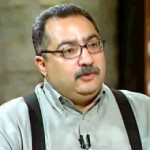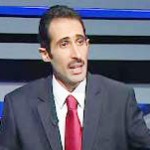Amid Morsy’s recent decisions, columnists criticise how the president blindly follows instructions from his Islamist group. Although the results of the national dialogue meeting were deemed successful by many, some columnists argue it rather marked a new presidential failure.
It is not a state
Ibrahim Eissa
Tahrir Newspaper
Eissa examines the policy “blunders” the president and his group have made. He states that such mistakes have made opposition to such policies inevitable, and wonders what circumstances are preventing the president from seeing the extent to which Egypt has become a de-facto failed state. To Eissa, in a political entity defined by the term “state”, the president cannot hide from demonstrators in front of his palace and then complain when the driver of his armoured car was injured.
The security apparatus cannot hibernate while Islamists encircle the Supreme Constitutional Court and the Media Production City, and revolutionaries fill Tahrir in response. He wonders how in a “state”, Muslim Brotherhood militias can protect the Presidential Palace from dissident demonstrators, while the country is being run by the supreme guide of an illegal society and his deputy.
Eissa says that a state whose president accuses a group of people of being thugs, and of receiving foreign money to incite violence, before being acquitted by the prosecution, is not a state. Eissa concludes by stating that the state whose president regards himself as a Friday preacher and his citizens as worshippers is not a state; and that opposition is a natural response.
To those demanding my head
Magdy Al-Gallad
Al-Watan Newspaper
Addressing the supreme guide of the Muslim Brotherhood, Dr Mohamed Badie, his deputy Khairat El-Shater, and President Morsy, Al-Gallad says he is unafraid of the death threats he has received, and which were publicly expressed by pro-Morsy demonstrators at their demonstration at Cairo University.
He reminds them that their supporters displayed his photograph, alongside several of his journalist colleagues, next to insults printed in large font, while bombarding the pictures with their shoes. Al-Gallad expresses his readiness to pay whatever price for free speech, even if that includes his own life, and he recounts examples of others who bravely paid their lives in defence of free press.
It is no wonder to him that the supporters of Hazem Abou-Ismail included him on their black list. While stating that the blood of a Muslim is sacrosanct, he does not demand protection from the Muslim Brotherhood leaders, out of his belief that such notions are divergent with their core beliefs.
He wishes to be buried in his home village in Sharqiya province, where his cohorts will visit his grave, pray peacefully as they would have always done, in what Al-Gallad sees as the original form of Egyptian Islam, which does not utilise religious passions to jump to power and worldly control.





